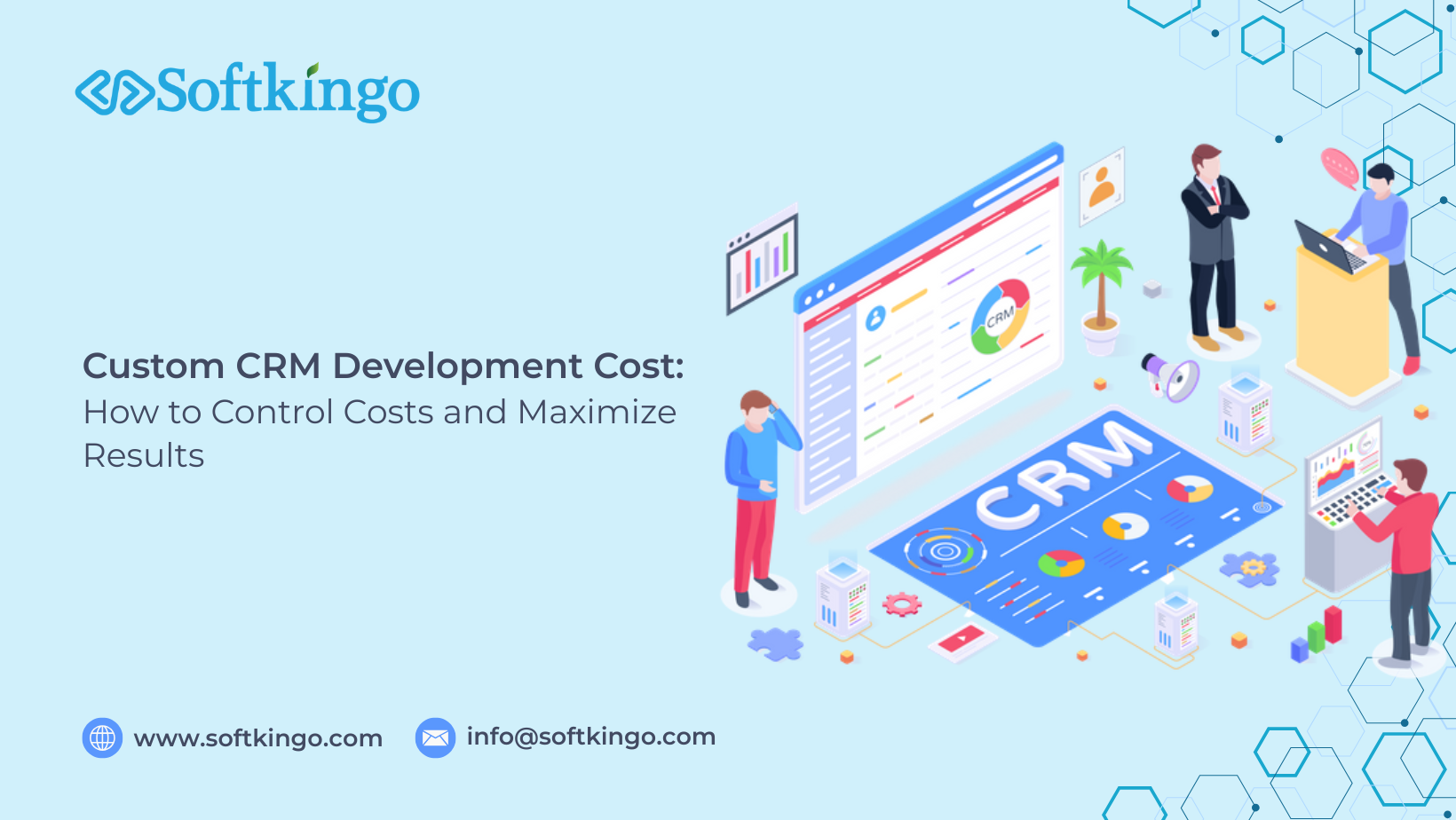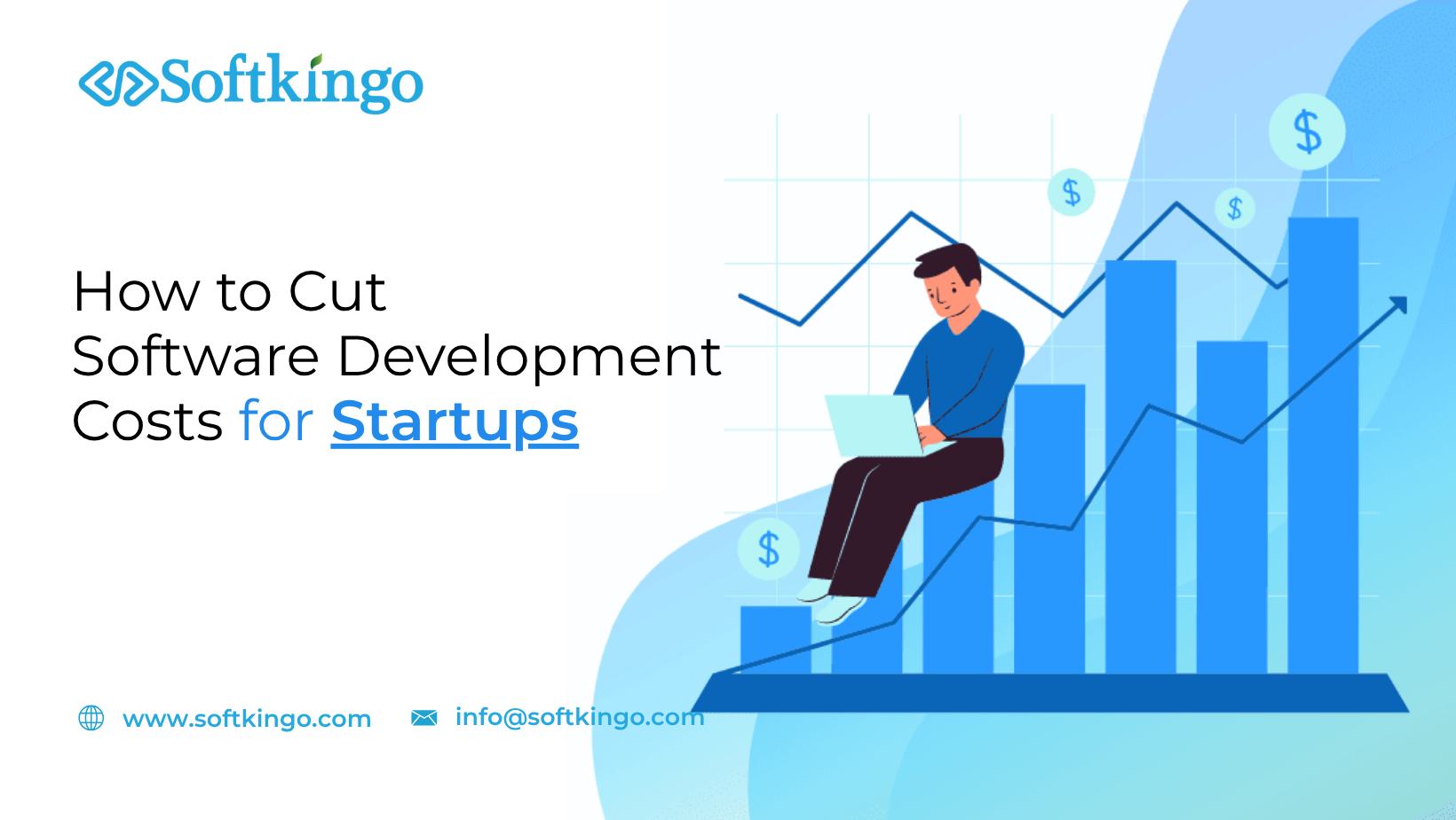Why Custom Software Development is the Key to Your Business Success
Developing the right software for your business can be a tricky and critical decision. On one hand, you could choose an off-the-shelf software solution that provides a general set of features suitable for a wide range of businesses. On the other hand, you could opt for custom software, where you have the ability to dictate every feature, design, and functionality according to your specific business needs. In this blog, we’ll delve into what custom software development entails, how to determine if it’s the right fit for your business, how to choose the best technology stack, and tips for selecting the right custom software development company in India.
What is Custom Software Development?
When it comes to software for your business, you typically encounter two main categories: off-the-shelf software and custom software. Each type has its own set of advantages and drawbacks, and the right choice largely depends on your specific business needs.
Off-the-Shelf Software
Off-the-shelf software can be likened to a pre-packaged product that caters to a broad audience. For example, think of buying a cake from a bakery — it’s a standard cake, made to please as many customers as possible. Off-the-shelf software comes with a predefined set of features and functionalities that are designed for general use cases, making it a great fit for businesses with standard, common requirements.
Custom Software
On the other hand, custom software is more like a personalized cake, baked according to your specific instructions. In the world of custom software development, you have the flexibility to design the software exactly as you envision it, ensuring it aligns with the unique needs of your business. Custom software allows you to choose the features, functionalities, and design aspects that will best serve your goals.
Custom software offers several advantages over off-the-shelf solutions:
- Scalability: Custom software is built to grow and adapt with your business.
- Tailored Solutions: Custom software can address your unique challenges and pain points in a way that off-the-shelf software cannot.
- Competitive Advantage: Custom software can provide a competitive edge that helps differentiate your business in the market.
How to Identify if Your Business Needs Custom Software
Before diving into the development of custom software, it’s essential to analyze your business needs and determine whether custom development is the right path. Here’s a step-by-step process to help you identify if your business could benefit from custom software:
1. Evaluate Existing Processes and Software Limitations
Review your current systems to see if they are meeting your needs. Are there frequent bottlenecks or limitations that hinder your workflow? If your existing software is cumbersome, inefficient, or lacks features that are crucial for your growth, custom software may be the solution.
2. Define Specific Requirements and List Desired Features
Make a detailed list of what you need from the software. Identify the features and functionalities that are crucial to your business operations. This list will act as the blueprint for your custom solution.
3. Scalability and Growth Alignment
Assess if your current software can scale with your business. If you anticipate significant growth, you need a system that can handle increased users, data, and functionalities. Custom software can be built with scalability in mind, ensuring that it evolves with your business.
4. Cost Considerations
Understand both the initial costs and the ongoing maintenance costs of custom software. Factor in how the custom solution will provide value by automating tasks, offering unique functionalities, and improving overall efficiency. Calculate the break-even point — the time it will take for the benefits of the software to outweigh its costs.
5. Long-Term Benefits and Competitive Advantage
Custom software can provide long-term value through increased efficiency, improved customer satisfaction, and a stronger market position. Weigh these benefits against the initial investment and decide whether custom software is the best strategic move for your business.
Benefits of Choosing Custom Software for Your Business
Custom software may not be necessary for every business, but it offers significant advantages in specific circumstances. Here are some key benefits of choosing custom software for your business:
1. An Extension of Your Brand
Custom software is like a bespoke suit — it’s crafted to fit you perfectly. Just as a custom suit enhances your appearance, custom software enhances your business by aligning with your brand’s identity and goals. It reflects your values, making you stand out in the market.
2. Scalability and Flexibility
As your business grows, your software needs to grow with you. Custom software offers the flexibility to add new features, scale user numbers, and adjust the system to accommodate future business demands.
3. The Perfect Fit for Your Business
Custom software is like the missing piece of a puzzle — it integrates seamlessly into your existing processes, streamlining operations and improving efficiency. Off-the-shelf software often requires compromise, but with custom development, you get a solution that fits your business perfectly.
4. Competitive Edge
In a crowded marketplace, differentiating your business is crucial. Custom software provides unique features and functionalities that help you stand out from competitors, giving you a competitive edge that generic solutions can’t offer.
5. Enhanced Security
Security is a critical concern for any business. Custom software offers a higher level of security since it can be tailored to meet your specific data protection needs, ensuring that sensitive business and customer data remains secure.
6. Better Support and Maintenance
With custom software, you get personalized support that is tailored to your needs. This is similar to having a dedicated team to maintain and improve your software, ensuring it continues to meet your business requirements as it evolves.
Choosing the Right Technology Stack for Your Custom Software
Once you’ve decided to move forward with custom software, one of the next steps is to choose the right technology stack. The technology stack refers to the combination of programming languages, frameworks, databases, and tools used to develop the software.
Key Factors to Consider When Choosing a Technology Stack:
- Scalability: Ensure that the technology stack can handle future growth, whether it involves more users or larger data sets.
- Security: Opt for technologies that offer robust security features to protect your business and user data.
- Support and Community: Choose technologies with strong community support and active forums, as this will make troubleshooting easier.
- Compatibility: Ensure that the chosen stack integrates well with other systems or tools you are using.
Popular technology stacks include:
- .NET for enterprise applications.
- JavaScript frameworks like React, Angular, and Vue.js for responsive user interfaces.
- Node.js for scalable backend systems.
- Python and Django for robust web applications.
Tips for Choosing the Right Custom Software Development Company in India
Selecting the right custom software development company is crucial to the success of your project. Here are some tips to help you find the best partner:
1. Research and Shortlist Companies
Conduct thorough research to identify companies with experience in developing similar software solutions. Look for firms with a proven track record in custom software development.
2. Examine Portfolios and Case Studies
Review the company’s portfolio and case studies to understand the quality of their work and the types of projects they have handled in the past. Request references from previous clients if possible.
3. Assess Technical Expertise
Ensure that the company has expertise in the technologies required for your project. They should be proficient in the programming languages and frameworks relevant to your needs.
4. Communication and Transparency
Communication is key to a successful development process. Choose a company that values transparency and keeps you informed at every stage of the project.
5. Budget Considerations
While pricing is important, don’t select a company based on cost alone. The cheapest option may not provide the best value. Focus on quality and long-term support.
6. Maintenance and After-Sales Support
Ensure that the company offers ongoing support and maintenance services. Custom software requires regular updates, security patches, and enhancements.
Conclusion
Choosing between off-the-shelf and custom software is a significant decision for your business. Custom software provides scalability, tailored solutions, and a competitive advantage that off-the-shelf software cannot offer. By carefully assessing your business needs, selecting the right technology stack, and partnering with the right custom software development company, you can ensure that your custom software solution meets and exceeds your business expectations. Success in custom software development lies in meticulous planning, clear communication, and continued support, ensuring that the solution remains relevant and effective for years to come.
Was this article helpful?
Current mood: Okay





